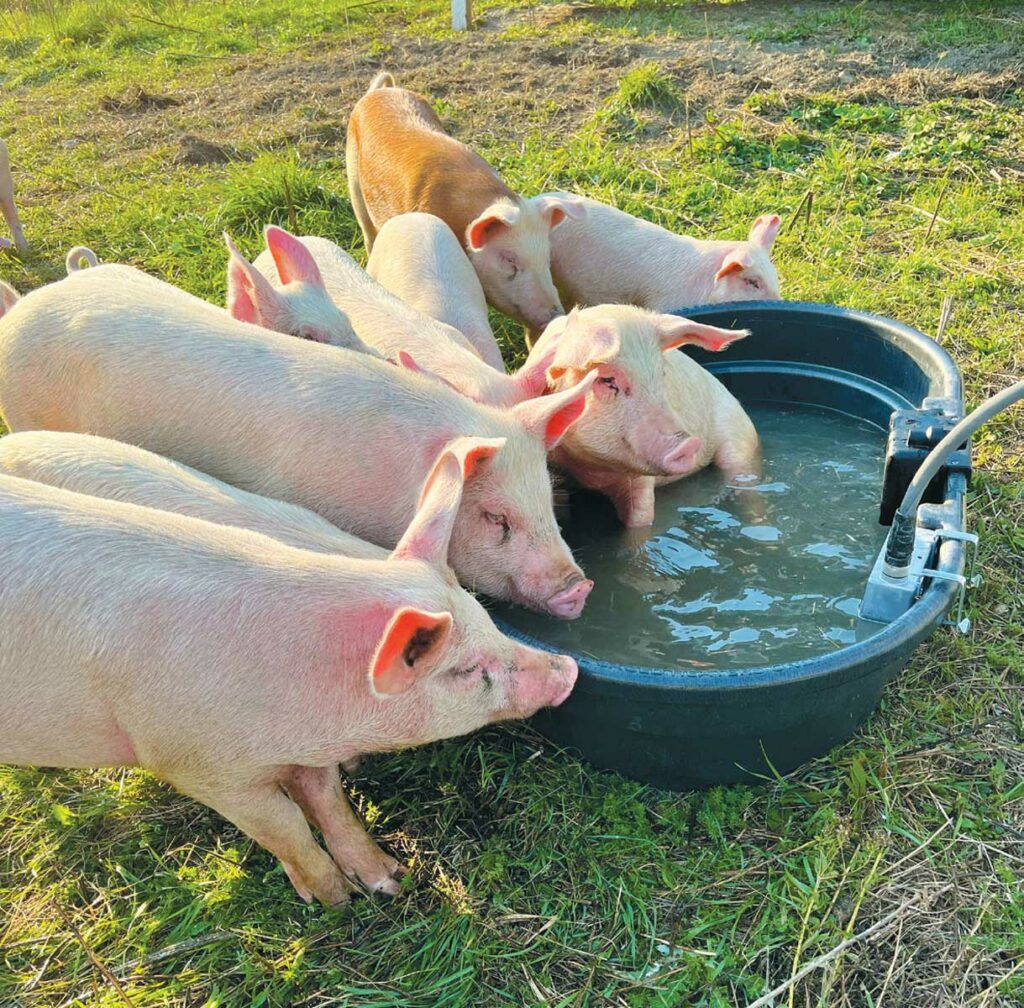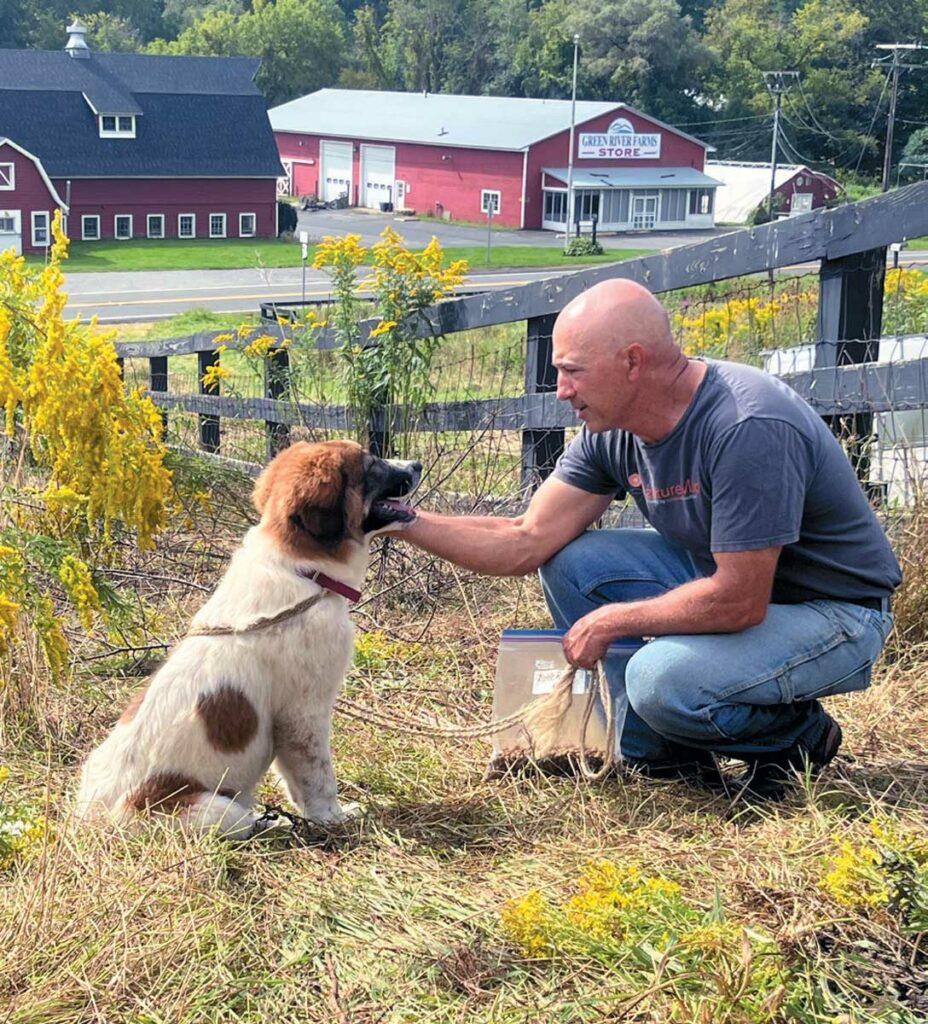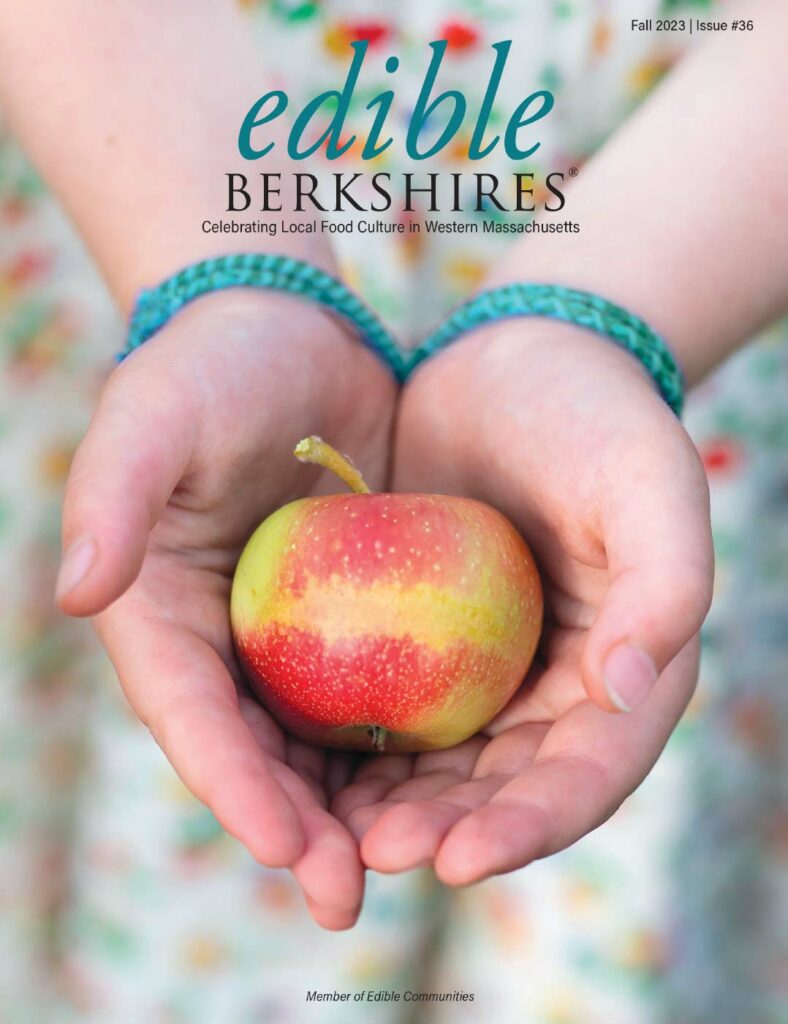

Drive past the long-inactive Green River Farms in South Williamstown (adjacent to The Store at Five Corners), and you’ll notice a welcome flurry of activity on the property that’s home to some of the best views in the county. Now, it is also home to Green River Regenerative Farm. Purchased by a German private equity firm in June 2024, the 235-acre property has been leased by Understanding Agriculture, a national organization that promotes regenerative agriculture, and is now managed by local consultant Morgan Hartman. But don’t get too hung up on the somewhat complex operating structure. The concept is relatively straightforward: Focus on soil health; integrate livestock into the care of your crops to reduce costs; grow and sell nutrient-dense food at reasonable prices; connect with local food entrepreneurs to better serve the community.
“I see this farm as a networking center,” says Hartman. “There’s a whole regenerative ecosystem that we’re hoping to spawn.” At the heart of regenerative agriculture is healthy, microbe-rich soil that delivers nutrients to plants without the use of tilling or synthetic fertilizers. At this writing, Hartman had begun bringing the property’s apple orchard back to life by introducing sheep, pigs, and chickens into the ecosystem. “The conventional wisdom is you don’t put livestock in orchards because you want to be able to spray,” he says. “But why would I spend time, energy, and fuel doing something animals do by their very nature?” Animal manure fertilizes the land, sheep eat the grass, mitigating the need for mowing, and chickens consume pests. Additionally, those animals provide a diverse source of revenue for the farm.
Hartman is already at work on a farm store that he says will sell only verified regenerative products, produced at Green River and elsewhere. And he’s building relationships with local chefs and restaurateurs with whom he hopes to work as a future supplier or collaborative grower. Among them: Aaron Oster (Berkshire Community College), Matt Brogan and Kat Hand (Berkshire Cider Project), Tu Le (State Food + Drink), Mariah and Justin Forstmann (Casita), Cory Wentworth (The Store at Five Corners), and Kevin Kelly (After Hours), among others. “We’re going to make cider in the fall,” says Hartman, “and we’re in the early stages of conversation with Kat and Matt about co-branding some products.”
Also in the works are greenhouses that Hartman, who has a background in landscape design, says should be completed in April and open to the public this summer. Regenerative principles will also be applied to the farm’s greenhouse plants, so things will look different from a traditional nursery. “If you buy a flat of peppers, we won’t use peat moss,” Hartman says. “We’ll use soil-based medium that is heavy on compost. We’re fostering living soil in the greenhouse as well as in the field.”
While many farmers in the Berkshires already describe themselves as regenerative, one of Hartman’s goals is to educate farmers, near and far, about the benefits of regenerative practices. To that end, Understanding Agriculture, through its nonprofit sister organization, Soil Health Academy, will host regular educational events at the farm. Next up: a three-day workshop on regenerative orcharding in mid-June.
Hartman sees Green River Regenerative Farm as a living example of how the regenerative method of farming is not only healthier but more profitable. “The leading reason that regenerative producers become more profitable is that they reduce overhead,” he says. “So you can still sell at a commodity price and be profitable. High-quality food does not have to be expensive.”







